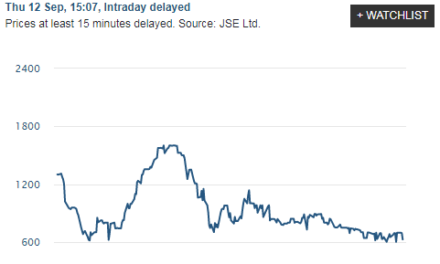
TransNamib begs for N$9 billion bail out
TransNamib unveiled its first consignment of 21 locomotives this week at the Windhoek train station.
The 5 locomotives arrived 110 days into the parastatal’s 180 days turn around strategy.
The General Electric American Railroad Association manufactured the machines consisting of light locomotives and heavier locomotives weighing 112 tons.
The locomotives are similar to the current fleet with the exception of one type which will only be allowed on restricted railways such as the Walvis Bay-Kranzber section and the newly constructed Tsumeb-Oshikango section due to a heavy axle load. Acting CEO Hippy Tjivikua said that both types of locomotives are going to significantly increase the pulling capacity of Transnamib, thereby satisfying the needs of their customers.
More repairs of the existing locomotives are planned thereby increasing the fleet from the current 18 to over 50.
Tjivikua said that TransNamib’s N$140 million turnaround plan will go well as they are replacing the current locomotives which are 19 years over their lifespan which makes operations challenging.
Speaking at the same event, Board Chair of TransNamib, Pieter Oosthuizen said that the first part of the Turnaround blue print focuses on getting what he described as taking an ill patient out of the Intensive Care Unit.
“Our Turnaround Plan has, without any doubt, definite empowerment opportunities specifically designed for our employees incorporated within the lucrative restructuring g packages.
Our employees will have the first right of refusal to become businessmen and women who will have opportunities to participate and own TransNamib’s non-core business activities as entrepreneurs.
He said that the company will focus on its core business which is bulk freight and passengers. In the medium and long term, the parastatal is aiming at getting the Deloitte Best Company To Work for prize in their trophy cabinet.
The railway network is also in bad condition and the company is planning to put out its begging hat to government for N$9 billion to fix the railway tracks.
Tjivikua said the future of TransNamib’s success rests on Public Private Partnerships.
“We have to craft new mechanism on how we can collectively plan and uniquely fund, together with our customers, rolling stock that meet their needs, without relying on the Fiscus endlessly,” Tjivikua said.
The Minister of Works and Transport Erkki Nghimtina said at the event that he is aware of the challenges facing TransNamib and that it will stay true to its commitment of making the parastatal efficient and regain its integrity.










































